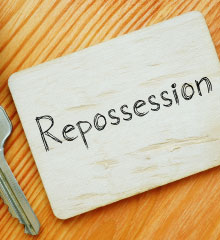Can You File Bankruptcy After Being Sued in Michigan?
Updated on 19 May 2025
If you have been sued in Michigan for an unpaid debt, filing bankruptcy could be your best option. The process was designed to offer relief to those who find themselves unable to pay their creditors, including those who have been sued. If a debt collection lawsuit has been filed against you, you may be able to fight the claim, but the automatic stay issued by a bankruptcy court is the only guaranteed way to stop the suit from progressing.
Will Bankruptcy Stop a Civil Lawsuit?
Once a creditor has served you with a civil lawsuit in Michigan, filing for Chapter 13 or Chapter 7 will stop the process in its tracks. When you submit your petition to the court, it will issue an “automatic stay,” which is a court order preventing your creditors from pursuing collection activities against you, even if you’ve already been sued.
Suppose a lawsuit has already been initiated against you when you file. In that case, legal procedures state that the case cannot proceed unless the creditor obtains permission from the bankruptcy court. Likewise, your creditors cannot file new lawsuits once the automatic stay is in place.
Once you are issued a discharge of your bankruptcy, your obligation to repay the suing party is permanently eliminated. In other words, the creditor who sued you, along with everyone else you owed at the time of filing, no longer has the right to pursue any collection attempts against you. They won’t even be permitted to report the debt to the credit bureaus.
Should I File Bankruptcy if I Am Judgement Proof?
A debtor who has been sued in Michigan is generally considered “judgment proof” when they would not have sufficient assets or income to repay a judgment that is secured against them. In other words, even if the creditor were to win the case, the debtor could not pay.
Even if you are judgment proof, it may be beneficial to file if any of the following apply to you:
The choice to file for bankruptcy can protect your future assets, even when you don’t have anything to protect at the time of the lawsuit. Because some debts are collectible for years after a judgment is issued against you, being judgment proof is not a long-term answer if you plan to make money or own things in the future.
Lawsuits You Can't Stop by Filing for Bankruptcy
Michigan law includes certain rules about the types of lawsuits that can be stopped. These include:
-
Paternity suits
-
Child support and alimony proceedings
-
Child custody and visitation cases
-
Criminal charges
Additionally, while the automatic stay will temporarily halt a judicial foreclosure or an eviction in Michigan, only a repayment plan provided in a Chapter 13 will resolve these lawsuits.
Bankruptcy as a Solution to Lawsuits
Filing for bankruptcy can offer relief to individuals who are overwhelmed by debt and facing lawsuits from creditors. By filing for bankruptcy, you can put a stop to the legal actions against you and get a fresh start on your financial life. Bankruptcy can help you eliminate or reorganize your debts, allowing you to regain control over your finances and move forward.
Consulting with a Bankruptcy Attorney
If you are considering filing for bankruptcy after being sued, it is essential to consult with an experienced bankruptcy attorney in Michigan. A knowledgeable attorney can help you navigate the complex bankruptcy process, assess your financial situation, and advise you on the best course of action. They will also ensure that your rights are protected throughout the bankruptcy proceedings, giving you peace of mind and the best chance for a successful outcome.
Understanding the Bankruptcy Process
The bankruptcy process can be overwhelming, especially when you are already dealing with the stress of a lawsuit. It is crucial to understand the differences between Chapter 7 and Chapter 13 bankruptcy, as each has its own eligibility requirements, benefits, and drawbacks. A bankruptcy attorney can help you determine which chapter is most suitable for your specific situation and guide you through the entire process.
Rebuilding Your Credit After Bankruptcy
While bankruptcy can provide much-needed relief from lawsuits and mounting debt, it does have a significant impact on your credit. However, rebuilding your credit after bankruptcy is possible, and it's essential to take steps to do so. Establishing responsible financial habits, such as creating a budget, paying bills on time, and using credit wisely, can help you improve your credit score over time. Additionally, seeking credit counseling or financial education can help you gain the skills and knowledge necessary to maintain a healthy financial future.
Summing Up
Facing a lawsuit due to unpaid debts can be incredibly stressful, but filing for bankruptcy can provide a way out. If you are in this situation, consult with an experienced bankruptcy attorney in Michigan to explore your options and determine if bankruptcy is the right choice for you. By taking action to resolve your debts, you can start rebuilding your financial life and move toward a more secure future.


